Interviews and photos by Frances Abraham and Marcelle Thomas
Child Protection Week begins today and the Ministry of Human Services and Social Security has asked the public to be more vigilant and to report cases of child abuse when they occur. This week we asked the man and woman in the street what course of action they would take if they knew of a child who was being abused and also what they think should be done to help prevent the abuse of children in Guyana. Their responses follow:
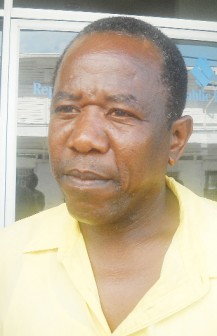 Colwyn King – educator: ‘First of all, intervene in one sense, in dealing with the abuser to find out what it is to get to the bottom of it. After then, if it entails the breaking of the law to get that to the relevant authority and I think that, to follow the legal course that is necessary in addressing this matter.’
Colwyn King – educator: ‘First of all, intervene in one sense, in dealing with the abuser to find out what it is to get to the bottom of it. After then, if it entails the breaking of the law to get that to the relevant authority and I think that, to follow the legal course that is necessary in addressing this matter.’
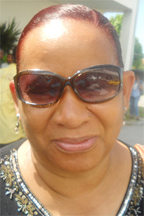 Marianne Murray – overseas-based Guyanese nurse: ‘The course of action will depend on the situation because sometimes you can go in and help the child and sometimes you can’t, but I would definitely intervene. I think parents need to be educated because a lot of them are not prepared for children anyways.’
Marianne Murray – overseas-based Guyanese nurse: ‘The course of action will depend on the situation because sometimes you can go in and help the child and sometimes you can’t, but I would definitely intervene. I think parents need to be educated because a lot of them are not prepared for children anyways.’
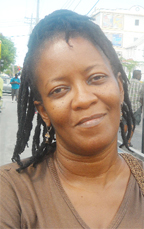 Monica Barrow: ‘If I see a child being abused I would go against it because that’s not right. I would call the police or whatever relevant authorities… there must be someone to call so I would call them and let them know that the child is being abused. I believe the limit should be scolding but you don’t go about beating them and giving them brands about their skin and knocking their head and all of that. That’s not right. Also, in the schools, teachers shouldn’t beat the children because when the parents report it then the teacher don’t pay attention to the child no more so they should look into that matter especially and form some committee against child abuse.’
Monica Barrow: ‘If I see a child being abused I would go against it because that’s not right. I would call the police or whatever relevant authorities… there must be someone to call so I would call them and let them know that the child is being abused. I believe the limit should be scolding but you don’t go about beating them and giving them brands about their skin and knocking their head and all of that. That’s not right. Also, in the schools, teachers shouldn’t beat the children because when the parents report it then the teacher don’t pay attention to the child no more so they should look into that matter especially and form some committee against child abuse.’
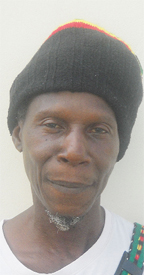 I-Roots – artiste: ‘Child abuse should stop and no one should abuse their child. You should teach a child and grow them up in the right way. If I saw someone abusing their child I would speak to them and encourage them to refrain from doing such things and if they don’t I would report it to the higher authorities.’
I-Roots – artiste: ‘Child abuse should stop and no one should abuse their child. You should teach a child and grow them up in the right way. If I saw someone abusing their child I would speak to them and encourage them to refrain from doing such things and if they don’t I would report it to the higher authorities.’
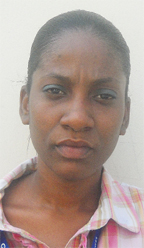 Naomi Sampson: ‘I would first find out the reason why they are abusing the child and then I would try to give the person advice but if that don’t work then I would report it to the police. I definitely disagree with child abuse and to help in the prevention of child abuse, I think they should have proper child protection agencies, but since they already have that then it is up to the parents to know what they are actually doing with their children because that’s not right.’
Naomi Sampson: ‘I would first find out the reason why they are abusing the child and then I would try to give the person advice but if that don’t work then I would report it to the police. I definitely disagree with child abuse and to help in the prevention of child abuse, I think they should have proper child protection agencies, but since they already have that then it is up to the parents to know what they are actually doing with their children because that’s not right.’
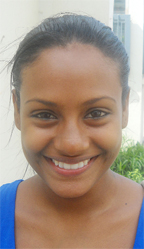 Melisa Khan – stay-at-home mom: ‘If I know of a child being abused I would report it to the relevant authorities. I know there are some ignorant parents and they might want to cuss me out or something but I won’t be afraid I would still report them. Some parents when you report them they take it out more on the children and that I feel sorry for. I would have to think of a plan on what is best for the child and then act. As it relates to stopping child abuse more parents need to be educated that there are alternatives to beating. This is where the various ministries should get involved with a collective effort we can help to decrease the child abuse rate you know.’
Melisa Khan – stay-at-home mom: ‘If I know of a child being abused I would report it to the relevant authorities. I know there are some ignorant parents and they might want to cuss me out or something but I won’t be afraid I would still report them. Some parents when you report them they take it out more on the children and that I feel sorry for. I would have to think of a plan on what is best for the child and then act. As it relates to stopping child abuse more parents need to be educated that there are alternatives to beating. This is where the various ministries should get involved with a collective effort we can help to decrease the child abuse rate you know.’
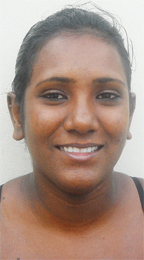 Wasiyma Khan- private sector employee: ‘There are better ways than abusing children in getting them to listen to parents. If I witnessed a kid being assaulted I would report it or if its somewhere that I can’t report it right away I would try to talk to the parent. Hitting children is not right, I mean I gave my parents a real difficult time but they never abused me. If they could keep from abusing a bad child then anyone could do it. I also believe that more should be done for children not just talk but action. When a few parents are made examples by the law you will see how quick the others will pull their socks up.’
Wasiyma Khan- private sector employee: ‘There are better ways than abusing children in getting them to listen to parents. If I witnessed a kid being assaulted I would report it or if its somewhere that I can’t report it right away I would try to talk to the parent. Hitting children is not right, I mean I gave my parents a real difficult time but they never abused me. If they could keep from abusing a bad child then anyone could do it. I also believe that more should be done for children not just talk but action. When a few parents are made examples by the law you will see how quick the others will pull their socks up.’
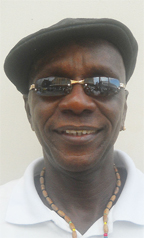 Dennis Clarke – basketball coach: ‘If I saw a child being abused I think I might get physical with the abuser; real physical. This is in an effort to represent that child. I think children should be protected and not abused. Come on, they are here to be loved and that’s what as adults we should be giving to them. I personally think the Ministry of Human Services should implement programmes where children feel comfortable reporting an abuser to anyone in authority. There should also be stricter laws in Guyana to protect children from all forms of abuse. Most of us see abuse from only the physical standpoint but there are other forms of abuse and in all forms Guyana should try to protect its children.’
Dennis Clarke – basketball coach: ‘If I saw a child being abused I think I might get physical with the abuser; real physical. This is in an effort to represent that child. I think children should be protected and not abused. Come on, they are here to be loved and that’s what as adults we should be giving to them. I personally think the Ministry of Human Services should implement programmes where children feel comfortable reporting an abuser to anyone in authority. There should also be stricter laws in Guyana to protect children from all forms of abuse. Most of us see abuse from only the physical standpoint but there are other forms of abuse and in all forms Guyana should try to protect its children.’
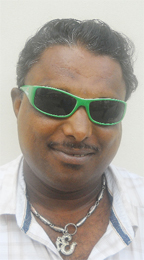 Catharine Panday (Bish) – businessman: ‘I am a very passionate advocate for the rights of children. I am a father first of all okay; I have a 16-year-old and an 18-year-old so you can imagine and let me tell you I have never raised a hand to hit either of them, so I know that there are non-violent ways to deal with children. Evidence of this: my son excels academically as well as in sports and let me tell you if I am not at one of his games he isn’t happy, unlike his friends who say openly they don’t want their parents anywhere near them. He tells everyone I am his best friend and that’s how it should be with one’s children. If I see a child being abused I think I might let the situation become the better of me and buss the parents (#$%). There are laws but there should be more done to help Guyana’s children from a legalistic standpoint.’
Catharine Panday (Bish) – businessman: ‘I am a very passionate advocate for the rights of children. I am a father first of all okay; I have a 16-year-old and an 18-year-old so you can imagine and let me tell you I have never raised a hand to hit either of them, so I know that there are non-violent ways to deal with children. Evidence of this: my son excels academically as well as in sports and let me tell you if I am not at one of his games he isn’t happy, unlike his friends who say openly they don’t want their parents anywhere near them. He tells everyone I am his best friend and that’s how it should be with one’s children. If I see a child being abused I think I might let the situation become the better of me and buss the parents (#$%). There are laws but there should be more done to help Guyana’s children from a legalistic standpoint.’
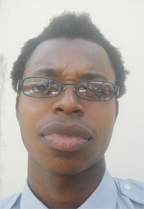 Mario Glasgow – University of Guyana student: ‘I don’t think that any child deserves abuse. Physical or verbal I think parents take for granted how deep their words cut and affect their kids. If parents talk to children in a gruff or rude way their child will be reluctant to confide in them. If I saw a child being abused, depending on the type of abuse I would know which avenue to take. If it’s a neighbour beating their child, depending on the relationship I would try to mitigate with my neighbour. If we don’t have a good relationship I would call the authorities; sexual abuse most definitely I would call the authorities. There should be enforcement of the laws that there are and more stringent ones should be made in an effort to give our children the best life as kids.’
Mario Glasgow – University of Guyana student: ‘I don’t think that any child deserves abuse. Physical or verbal I think parents take for granted how deep their words cut and affect their kids. If parents talk to children in a gruff or rude way their child will be reluctant to confide in them. If I saw a child being abused, depending on the type of abuse I would know which avenue to take. If it’s a neighbour beating their child, depending on the relationship I would try to mitigate with my neighbour. If we don’t have a good relationship I would call the authorities; sexual abuse most definitely I would call the authorities. There should be enforcement of the laws that there are and more stringent ones should be made in an effort to give our children the best life as kids.’
